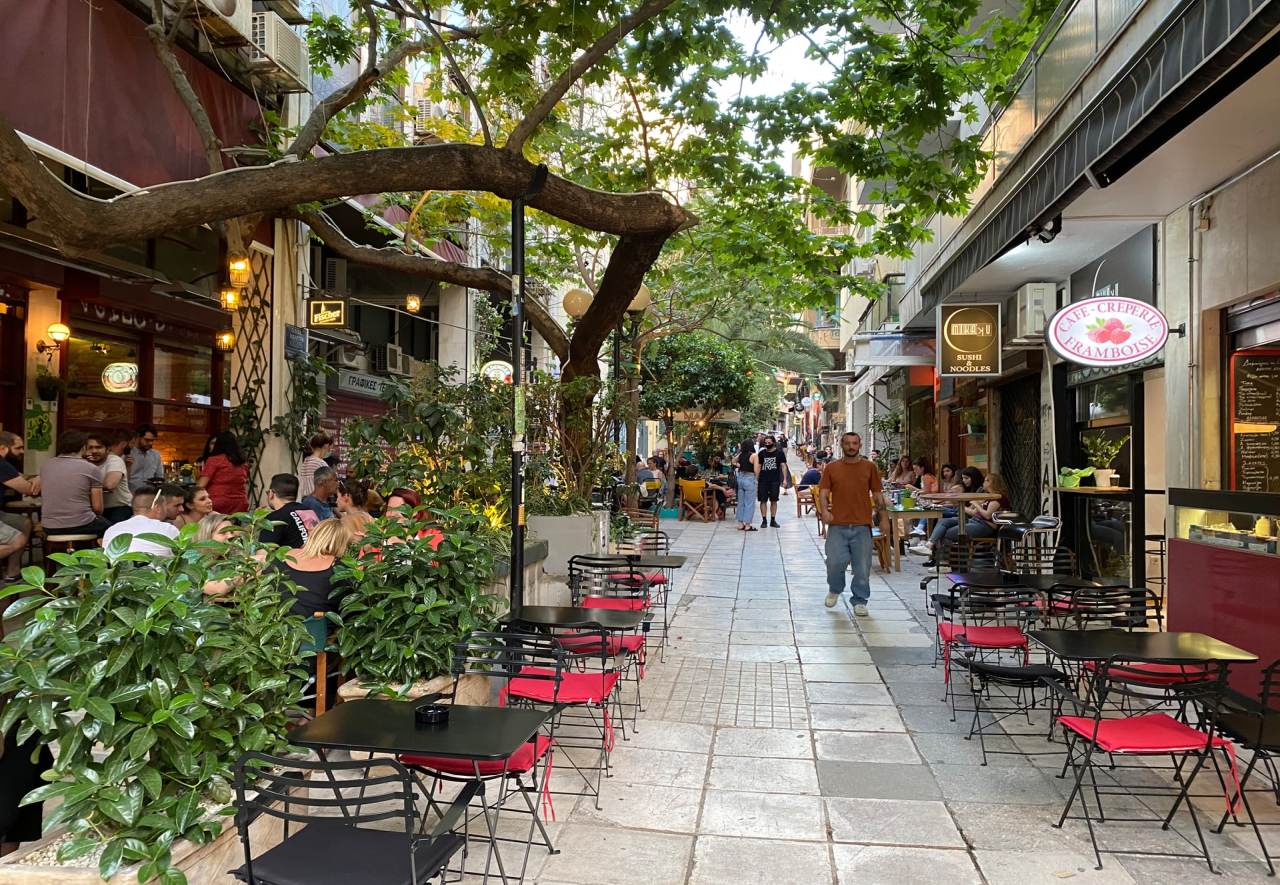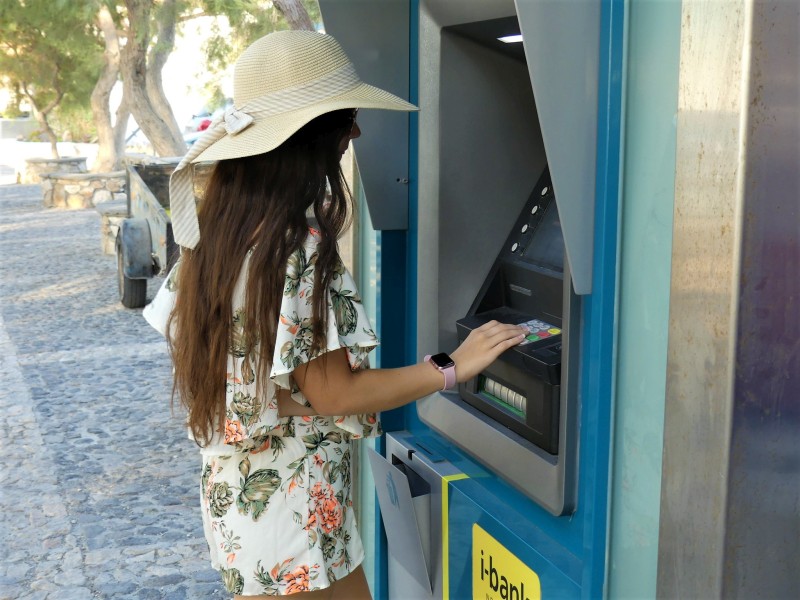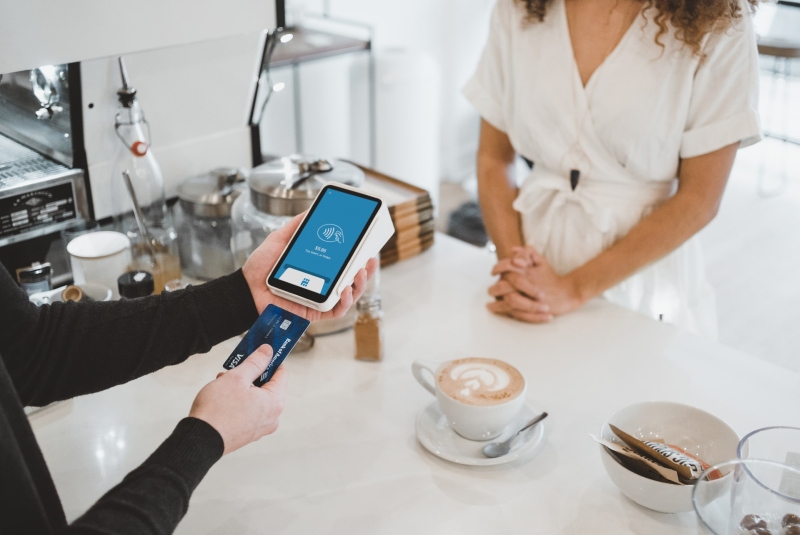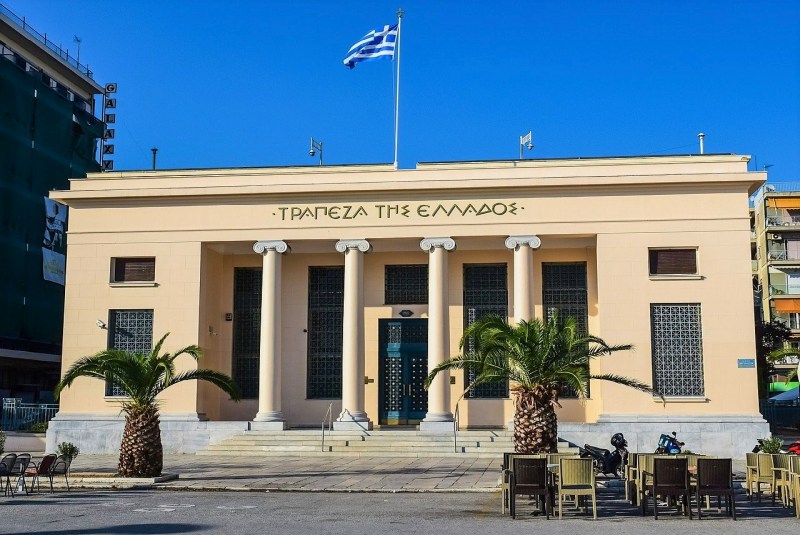



We Need Your Support!
We want to remind you that Athens by Locals is reader-supported. By booking tours, hotels, tickets, and other travel services through the links on our website, you can help us continue providing valuable content and information. Note that we receive a small commission only if you make a booking using our links at the time of your visit. So, if you're not quite ready to book yet, you can save this post and the links and return to make your booking when the time is right. We genuinely appreciate your support and are thrilled to have you in our travel community. Please don't hesitate to reach out if you have any questions or need assistance. Happy travels!
A basic understanding of how money in Greece works and how you can better handle your budget will inevitably be a crucial part of your trip to Athens.
This article gathers all the useful information you will need in one place for a trip without unpleasant surprises.
Below, you’ll find practical info on the currency of Greece, the use of credit and debit cards and ATMs, and a few tips for exchanging money while traveling to Athens.
The official currency of Greece has been the euro (€) since January 1st, 2002 when the country joined the Eurozone.
Thus, Greece shares a common currency with 19 out of 27 European Union member countries, meaning that you can use the same money while traveling throughout most of Europe.
The euro is issued in notes and coins. Specifically: 5, 10, 20, 50, 100, 200, and 500 euro notes (the last one being very rare) and coins of 1 and 2 euros as well as the denominations of 1, 2, 5, 10, 20, and 50 cents. Check the Euro rates here.
Although the big cities of Greece are now considered cash-free, you should always have some cash with you in Greece. That’s because there are some cases such as less touristy places or street vendors who are rarely equipped with POS machines and getting paid only in cash.
But let us explain. Until recently, the everyday use of cash in Greece was very common in major cities and the more rural areas. However, in the past few years, this has drastically changed.
Now, the major cities of Greece like Athens and Thessaloniki are cash-free to a great extent, and the use of debit and credit cards is very widespread, especially at younger ages.

Almost all local businesses use point of sale (POS) machines for all kinds of cards – even street kiosks and small shops.
This has made traveling through Greece easier for visitors since you won’t always need to withdraw and carry around large sums of cash.
Still, there are a few reasons why we’d recommend having some cash with you.
Firstly, if you plan to visit less touristy places like the countryside or the Greek islands – on a one-day trip from Athens for example.
Secondly, you might want to visit a flea market or buy something from a street vendor downtown.
Street stalls are rarely equipped with POS machines. Plus, paying a street vendor with a card automatically means that you won’t be able to bargain for the price.


It’s also important to note that sometimes hotels will ask for payment in cash even though you have paid for an advance with a credit card online.
To avoid such misunderstandings, we recommend booking your stay through booking.com and have complete peace of mind.
No, you can’t use US dollars in Greece – or any other foreign currency. You must exchange your money for euros, withdraw some euros from an ATM, or use a credit or debit card. On the other hand, you can use Wise.com and enjoy the freedom of spending in local currency, saving on unnecessary charges that often accompany international transactions. Visit Wise.com now, and thank us later.
You can exchange foreign currency at all the Greek and foreign banks and at currency exchange bureaus, which you can find at the Athens International Airport, the port of Piraeus, and in the most popular areas downtown like Syntagma and Omonoia.
Keep in mind that you will need a passport to exchange cash and that the process may take longer than you would think if you choose to go to a local bank for the exchange.

Also, we suggest you ask for notes up to 50 euros as larger notes will be tough to use out on the street, especially at small shops.
Apart from banks and currency exchange bureaus, you can withdraw some money from any ATM and receive euros. This is probably the easiest and least expensive option.
You can find more information on using ATMs in Greece below.
Use Wise.com: Wise is a money transfer company based in London that allows you to easily make international transfers and transactions at the international mid-market rate. No more financial surprises when you travel to Greece. Wise.com offers transparency and savings, making your trip a smooth and economical experience.
If, for whatever reason, you would prefer to go to a local bank or currency exchange bureau to get cash rather than withdraw from an ATM, you’ll have plenty of options in the city center of Athens. Here are a few of them:
Central Bank of Greece
National Bank of Greece
OneExchange
Argo Exchange
Using an ATM is probably the best way to get some cash in euros while traveling in Greece.
You will have no trouble finding an ATM in all of the popular neighborhoods of Athens in the city center and the suburbs.
A few typical places where you will spot ATMs are large squares, metro stations, supermarkets, shopping streets, and, of course, the airport and all the major ports of Athens.

Wise is an international account for over 40 currencies, with instant, super-cheap money transfer, a card to spend in any currency, and bank details to get paid in 9 different currencies. Find out how to save some money
As mentioned above, using credit and debit cards is quickly becoming the norm in Greece. You’ll have no problem using a foreign card at hotels, shops, and supermarkets nationwide.
Yet, when it comes to small cafes and tavernas (especially in small places), you’ll need to ask beforehand if their POS is working and if they accept payment by card.
The most widely accepted cards are MasterCard and VISA.
You might have some trouble using a Diners Club or American Express credit card in certain places, as these mean a higher commission for local businesses.

According to local legislation, to use a credit card, you’ll have to have a chip-and-PIN card. If you don’t have one, you can request a PIN code from your bank a few weeks before leaving home.
When using a credit card, you can expect to pay a fee of about 3% (*read below) for every transaction to cover currency exchange.
In general, we’d suggest using a credit card for any purchases and payments and using a debit card for withdrawing cash – the credit card payments are not processed immediately, giving you time to dispute a transaction if needed.
We also strongly recommend getting in touch with your bank before leaving to inform them that you are traveling and to learn about their transaction and currency exchange fees and withdrawal limits to avoid having to worry about hidden fees while traveling.
Here’s what is happening with foreign transactions and why we strongly recommend you to use Wise.com: Traditional banks profit significantly from foreign transactions through hidden fees, currency exchange, and commission fees, totaling an extra 3, 4% or 5%. These fees are often undisclosed, masking the actual cost. Wise breaks away from this pattern. They don’t impose currency exchange fees or take a commission from currency exchanges. Instead, they only charge a nominal fee, usually just a few cents, to process the transaction. This means significant savings for you, whether conducting transactions overseas or depositing funds directly into foreign bank accounts. Visit Wise.com now and say goodbye to hidden fees, and hello to transparent, real exchange rates.
If you are using a contactless card, you will have no problem making contactless transactions throughout Greece.
Keep in mind, however, that there is a daily limit of €50 for contactless transactions. If you exceed this limit, you must insert your card into a POS and provide your PIN number.
There are several major banks in Greece. Most notably:
You can find branches of these banks in the city centers of all major cities. In Athens, you will find both bank branches and ATMs all over the city center in all the popular areas.
Banks are open from 8 am to 2 pm Monday to Friday, except on public holidays.

If you plan to visit Greece for a short vacation, you won’t be able -and definitely won’t need- to open a local bank account.
On the other hand, if you plan to spend a long time in Greece as a staycation or as a digital nomad, setting up a bank account might be preferable.
Even though using credit and debit cards is quickly becoming the standard way of paying for international travel, some people still prefer using traveler’s checks.
Keep in mind that you will probably be able to use these checks in the tourist areas of Athens but if you try using one in an area that is not frequented by tourists or any place other than Athens you will find that most locals have no idea what they are.
If you are carrying traveler’s checks on your trip, we strongly advise that you exchange them for cash at a local bank. If you eventually use one, ensure you have your passport with you.
With Wise.com, there are no surprises in your financial itinerary. Navigate the charming streets of Athens without worrying about hidden charges – every euro stays where it belongs – in your pocket.
Nowadays, the use of personal checks is very rare in Greece. You won’t be able to use personal checks at restaurants, hotels, or shops (except for rare occasions) or even exchange them for cash at a local bank.
For you to be able to manage your budget for a trip to Athens or Greece, in general, more efficiently (and to have an idea of how much cash you’ll need to be carrying around with you), it’s essential that you have a general feel of how much things cost.
Below, you’ll find some indicative prices for everyday products and services.
Yes. Greece has been using the euro since 2002 as the official currency.
Although heated debates regarding leaving the Eurozone took place in 2015, Greece never actually left the Eurozone.
Your UK bank cards will work on all ATMs in Greece.
In Greece, you won’t be able to use any currency other than the euro.
Greeks prefer to use cash even though businesses are now required to accept cards.
Greece is still relatively cheap for international visitors. You’ll find that everyday life is quite inexpensive, especially food and transportation. Plus, if you book your hotel well in advance, you’ll be able to book your stay at a bargain.
ATMs in Greece are very safe and trustworthy. Still, we suggest you prefer to use ATMs that are adjacent to a bank and not standalone ATMs.
We hope that this guide has provided all you need to know about money in Greece and that you will have no trouble managing your budget while traveling throughout the country.
Make sure that you prepare accordingly before leaving home and rest assured that there will be no unpleasant surprises waiting for you on your trip.
A Quick Reminder:
Remember that Athens By Locals is here to guide you with planning the perfect trip to Athens and help you every step along the way. If you didn’t found what you’re looking for, or need any recommendations about your trip to Athens, feel free to contact us and we will do our best to help you. Please be as more detailed as possible regarding your subject so as to help you better.
If you like what you read please scroll down at the end of this page and subscribe to Athens By Locals so next time to receive more articles like this straight forward to your email. Join us on Facebook for comments, photos, and other fun stuff. If you enjoy this article please share it with your friends on Facebook.
Copyright © 2024 Athens By Locals © All rights reserved. No part of this site may be reproduced without our written permission.
Images owned by Athens By Locals. Image Banks or Companies promoted.